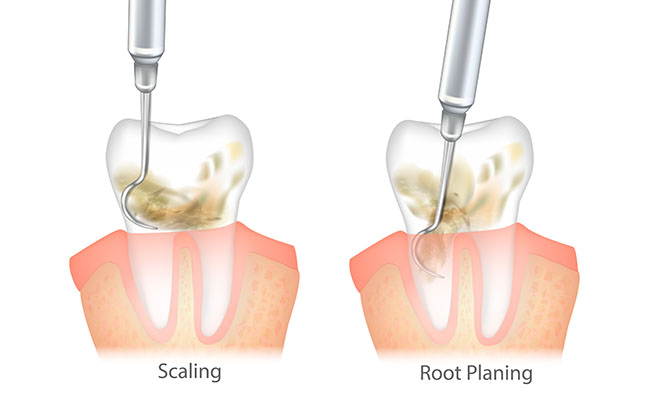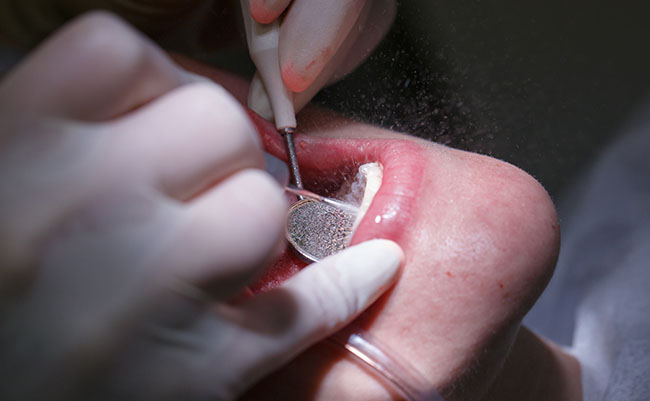Scaling and root planing dental cleanings, also referred to as deep cleanings, is a slightly more invasive teeth cleaning procedure (although it is non-surgical) which involves deep cleaning of the teeth and gum pockets in order to treat gingivitis and periodontitis, by removing tarter and plaque built-up underneath the gum line, and also by creating smooth and clean root surfaces.
Deep cleanings for gingivitis are usually completed in a single dental appointment. Deep cleanings for periodontitis may require multiple appointments and local anesthetics, depending on the severity.
A deep cleaning consists of two parts: Dental Scaling and Root Planing.

1. Dental Scaling
During the first part, a procedure called dental scaling is performed. Scaling is the process that removes plaque and tartar from the surface of the teeth, as well as from exposed tooth roots, and gum pockets below the gum line, which form as a result of gum disease. This procedure removes bacteria and helps reduce gum inflammation.
2. Root Planing
During the second part, the tooth roots are then smoothed in a process called root planing, to prevent future bacterial accumulation, by helping the gums reattach to teeth and eliminate gum pockets.
If you skip a visit to the dentist or do not brush your teeth often enough, you may develop tartar that extends below the surface of your gums. This tartar must be removed because it could cause an infection in your tooth or the soft tissues in your mouth. With root planing, deep tartar is removed with small, professional dental tools. You may be given a topical numbing medication to relieve any discomfort that this dental cleaning technique may cause.
+ Gingival Irrigation

Gingival irrigation is a procedure often done after a scaling and root planing procedure. By using an oral irrigator, we effectively flush out plaque, bacteria and other toxins that become trapped in the small spaces between teeth, under the gumline, and in periodontal pockets, preventing the buildup of harmful bacteria. This treatment is also used to deliver antimicrobials under the gumline.
Our registered dental hygienist will recommend a deep cleaning if you are showing any signs of periodontal disease (gum disease). Some common symptoms include red, swollen, bleeding, or receded gums; as well as bad breath.
To determine if you have periodontal disease and if a deep cleaning can benefit your oral health, schedule a consultation with us today.

